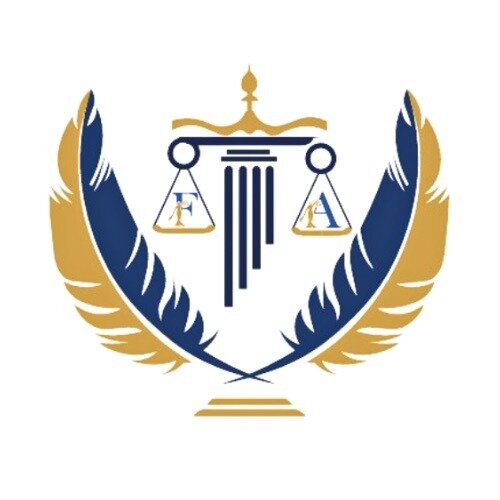Best Adoption Lawyers in Qatar
Share your needs with us, get contacted by law firms.
Free. Takes 2 min.
Free Guide to Hiring a Family Lawyer
Or refine your search by selecting a city:
List of the best lawyers in Qatar
About Adoption Law in Qatar
Adoption in Qatar is a unique process, as the cultural and legal practices in this region differ significantly from those in Western countries. In many Islamic nations, including Qatar, the practice of formal adoption, as it is known in the West, is not permissible under Sharia law. Instead, a concept called 'Kafala' is often practiced, which allows a caregiver to assume responsibility for a child without conferring the rights to surnames, inheritance, or full parental status. It is important for expatriates and Qatari residents to understand these distinctions and the local legal system when considering adoption or child guardianship.
Why You May Need a Lawyer
Navigating the legal requirements of adoption or child guardianship in Qatar can be complex. Here are some common situations where legal assistance might be necessary:
- Understanding and complying with the Kafala system and ensuring it aligns with your needs and expectations.
- Addressing issues related to international adoption, including negotiating between different legal systems.
- Handling disputes or complications that may arise with familial or guardianship arrangements.
- Ensuring compliance with all local laws and regulations to avoid legal repercussions.
Local Laws Overview
Qatari adoption laws are heavily influenced by Islamic principles and local customs. Key aspects include:
- The Kafala system allows a caregiver to be responsible for and care for a child without full parental rights.
- Adoptive parents under the Kafala system cannot change the child’s name or provide automatic inheritance rights.
- Potential caregivers must be approved by local authorities and often need to be of the same religion as the child.
- International adoptions are particularly complex, requiring navigation of both Sharia and the legal systems of prospective adoptive parents’ home countries.
Frequently Asked Questions
Can I formally adopt a child in Qatar?
No, Qatar follows Islamic law where formal adoption is not practiced. Instead, the Kafala system is used.
What is the Kafala system?
Kafala is a system of guardianship that allows a person or family to sponsor and care for a child without claiming parental rights.
Can expatriates participate in the Kafala system?
Expatriates may participate, but it involves a thorough legal process and often requires the sponsorship to align with specific religious and cultural guidelines.
Are there any restrictions on who can become a guardian under the Kafala system?
Yes, potential caregivers must meet certain requirements, including religious compatibility with the child and financial stability.
Do children under Kafala receive inheritance rights?
No, under the Kafala system, children do not automatically receive inheritance rights from their sponsors.
Can an adopted child retain the nationality of Qatar?
No, children sponsored under the Kafala system are not granted Qatari nationality.
Is a lawyer necessary for participating in the Kafala system?
While not obligatory, a lawyer can greatly assist in navigating the legal complexities and ensuring full compliance with local laws.
What are the common legal challenges associated with the Kafala system?
Challenges include navigating legal systems, ensuring religious compatibility, and handling disputes about guardianship and rights.
How can I start the guardianship process under Kafala?
Start by consulting with legal experts familiar with Qatari law and guardianship processes to understand the requirements and procedures.
Is international adoption possible from Qatar?
International adoption is challenging and involves complex legal processes; it generally requires compliance with both Islamic law and the laws of the adopting parents' country.
Additional Resources
For those seeking further guidance on adoption and child welfare in Qatar, consider exploring the following resources:
- Qatar Foundation for Social Work
- Ministry of Administrative Development, Labour and Social Affairs
- Embassy legal advisors familiar with both Qatari and international law
- Local NGOs that assist in child welfare and Kafala processes
Next Steps
If you require legal assistance navigating adoption or the Kafala system in Qatar, consider the following steps:
- Consult with a legal expert specializing in family and adoption law in Qatar.
- Research and gather all necessary documentation and information related to your case.
- Reach out to local or international organizations that specialize in adoption or child guardianship for preliminary advice and resources.
- Plan a visit to the relevant authorities or embassies for personalized guidance and to better understand procedural requirements.
Lawzana helps you find the best lawyers and law firms in Qatar through a curated and pre-screened list of qualified legal professionals. Our platform offers rankings and detailed profiles of attorneys and law firms, allowing you to compare based on practice areas, including Adoption, experience, and client feedback.
Each profile includes a description of the firm's areas of practice, client reviews, team members and partners, year of establishment, spoken languages, office locations, contact information, social media presence, and any published articles or resources. Most firms on our platform speak English and are experienced in both local and international legal matters.
Get a quote from top-rated law firms in Qatar — quickly, securely, and without unnecessary hassle.
Disclaimer:
The information provided on this page is for general informational purposes only and does not constitute legal advice. While we strive to ensure the accuracy and relevance of the content, legal information may change over time, and interpretations of the law can vary. You should always consult with a qualified legal professional for advice specific to your situation.
We disclaim all liability for actions taken or not taken based on the content of this page. If you believe any information is incorrect or outdated, please contact us, and we will review and update it where appropriate.
Browse adoption law firms by city in Qatar
Refine your search by selecting a city.















